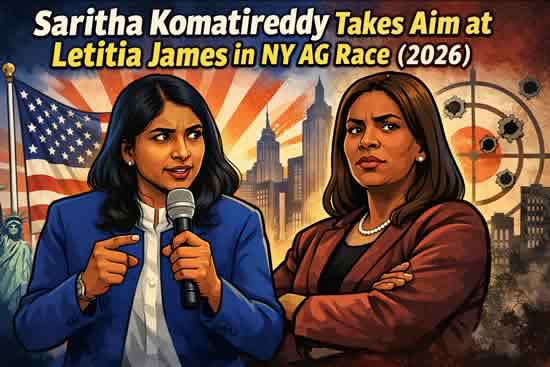June 23, 2023
Mayor Adams: I decided I wanted theme music from now on when I come on. You could tell by my attitude that I’m from New York and 32 and DC 37 and all the unions that are here, you could tell by our attitudes we’re from where?
Audience: New York!
Mayor Adams: Where you from? You from New York? I’m really excited today. Henry, we talked about this, Manny, Kyle, who is no longer with the union, but this is something that we talked about for some time. I remember on the campaign trail looking at how important this issue is for our members, transparency.
Here in New York City, we believe that healthcare is a human right, not a privilege, something that Dr. Vasan reminds us of every day. We are committed to ensuring that all New Yorkers, regardless of their immigration status or income, can get the care they need and the care they deserve.
We know that many working New Yorkers are struggling and living from paycheck to paycheck. Something that Deputy Mayor Williams-Isom reminded me of, that when we look at economic challenges that people are facing and hardships, their healthcare and their medical expenses are at the heart of the problem. We know that working New Yorkers are struggling, and we know what they’re going through and we acknowledge that. That is why we fought to get fair contracts for our members, and we will continue to do so.
We also know that healthcare can be confusing and complicated to navigate. It’s almost as though it is by design to make it difficult or in understanding exactly what you pay for. I look at my bills sometimes, and I wonder what exactly are all these different lines? We need to simplify so we can make sure that taxpayers and patients are getting their money’s worth. As I said yesterday, New Yorkers shouldn’t have to break the bank to get the healthcare they need.
Intro 844-A establishes an Office of Healthcare Accountability that provides recommendation relating to city healthcare and hospital costs. The office will convene stakeholders to examine healthcare costs and make available hospital financial documents. It will report on hospital insurance and pharmaceutical pricing.
We want to make sure that New Yorkers have all the information they need to stay healthy and get the care they deserve. Working New Yorkers shouldn’t be living in fear of getting sick because they can’t afford care. Your bank account should not determine the quality of care you deserve and your access to that care. This Office of Healthcare Accountability will help bring transparency to our healthcare system and ensure that New Yorkers know how much care costs.
I cannot thank enough both the speaker, but most importantly, someone who’s continued to just bring great ideas to our city through her government service, not only as a former commissioner, but now as a council member. I look forward to all of the ideas she brings to us continuously of how to address these major issues that are facing our city. That’s no other than Council Member Julie Menin. You can give her a hand.
Also want to thank our friends in labor, including my good friend Manny over at 32BJ and DC 37, a real hero for working people, Henry Garrido, and all the other unions who saw this need. It is really despicable when our union members fight for wages and just to see those wages go out the door based on their healthcare contracts. It’s not placing money in their pockets. It is placing money in a system that is not always fair and transparent. It is my pleasure to invite now our councilwoman, Julie Menin. Julie?
Councilwoman Julie Menin: Thank you so much, mayor. I cannot tell you how excited I am to be here for this very special moment. First of all, I really want to thank the mayor for signing this bill. I want to thank him for supporting this bill and the help that his administration gave each and every step of the way. I want to thank our phenomenal Labor Coalition led by, and I got to say it, 32.
Audience: BJ!
Councilwoman Julie Menin: DC 37, NYSNA, UFT, the carpenters. But in particular, I really want to thank both Manny and Henry, who you’ll hear from shortly, because they were there from the beginning. They really believed in this legislation. We have a phenomenal partnership, and I really want to thank them for everything and all of the partners in labor who have helped us along the way.
I want to thank the speaker for her support and all of my colleagues in the council. This bill passed unanimously, and that is rare when you have a big, meaty, substantive bill like this and it passes unanimously. So I’m thrilled about that.
Let me just say a few words about why this day is so special. We have now made New York City the first city in the country to create an Office of Healthcare Accountability. This is why it’s important. If you are, for example, a woman that is giving birth by C-section and you go to Montefiore Hospital, you will receive a bill for $55,000 for that C-section. If you go to another New York City hospital, it’s $17,000. If you need a routine colonoscopy, and, look, we all need a colonoscopy at some point or other in our life, unfortunately, you’re going to pay $10,000 at New York Presbyterian in my district. At another New York City hospital, you will pay $2,000. There really is no price transparency.
I will tell you, as a former commissioner of Consumer Affairs for the city, this is a vital consumer protection issue because there is no other industry where you as the consumer are procuring a service, albeit at your most vulnerable time, and you’ve no idea about the bill that you are going to receive. So this legislation changes it by having the hospitals list their prices by medical procedure.
But this bill is equally as important because of its fiscal implications. We as a city are spending $11 billion, or 10 percent of the city budget, on public sector employee, retiree, and dependent healthcare. Just five years ago, that figure was $6 billion. 32BJ has done a study that estimates that we would save up to $2 billion through this legislation. That is money we could use for affordable housing, for education, for so many other vital needs. That is why today is historic.
Price transparency works. Nine other states have enacted price transparency. They have all seen enormous drops in their healthcare spending. No other city has done this, mayor, so we are the first in the country now to do this with you signing this legislation and it’s truly, truly historic. So that is why I couldn’t be more pleased about today, and I really want to thank this incredible coalition that is standing here.
Now it is my pleasure, I get the honor of introducing someone who’s been fighting for so long for this and that is musical legend Fat Joe. I just want to say something. I’m a mom of four kids. This is my cool mom moment that I get to introduce you. I wish they were here. They’re not going to believe it. I’m going to send them a picture. But I really want to thank you for everything you’ve done. You’ve been going around the country speaking about this issue, so thank you so much for everything you’ve done.
Joseph “Fat Joe” Cartagena: Yesterday’s price is not today’s price. On the 50th anniversary of hip hop, hip hop started speaking up for the voiceless. You might see Fat Joe on an award show, whatever the case may be, but I really come from the South Bronx. I really come from New York City. I never forget the people who got me to where I’m at.
People are walking around struggling. There’s over 100 million Americans that are going through bankruptcy debt because of healthcare. When you see people walking around the street right outside Gracie Mansion, and they’re walking with a limp, nine times out of 10, they’re scared to go to the hospital because they know they can’t afford the price.
Now, this is something that’s affecting all Americans, Republican, Democratic, white, Black, Latino, Native American, Asian, you name it. The Amish is in on this. I’m serious. There’s a story of a Amish family that their daughter needed a kidney, and they were afraid because when you go to the hospital, I don’t know if people realize, that you’re signing a waiver to all your possessions if you can’t pay the bill. They were afraid to get their daughter’s kidney or lose the farm. It’s as serious as that.
This is going on all day everywhere in America. I like to thank the mayor. I like to thank Power to the Patients, who, my good friend Kevin back here, Mora. He was the one who really opened my eyes and said, “Joe, look at what’s happening to the people. The people talk to you.” So we’ve been going all over the country fighting for the patients.
What’s the difference? Why would I go to this hospital, where the MRI costs $4,000, when I could go across the street where it costs $1,500. If they display that, then we would know to go to the hospital across the street. Now what happens when the hospitals put up their prices? It forms competition, which brings the prices down.
I thank New York City for being the first to pass this, but I figure this is going to be a domino effect around the whole country, and we going to see one by one fall in line. Because if you are truly for the people, if you are truly for American people, then you stand with healthcare transparency. Thank you, mayor. Thank you very much. Manny, you up next, bro. Come on, Manny. Come on.
Manny Pastreich, President, 32BJ SEIU: All right. Yeah, following Fat Joe. I don’t know how I got following Fat Joe, but thank you.
Today’s a big day for ensuring healthcare access for all New Yorkers. We’re going to use words like disclosure and transparency, but this is fundamentally about ensuring that New Yorkers get quality healthcare, that New Yorkers have access to healthcare. As the mayor said, “Your bank account should not determine whether you get healthcare or not.” But I want to start by thanking you, Mayor Adams, for hosting us today, but really for ushering this legislation to reality. This is the beginning of a new era, and we thank you for your support.
I want to thank the Council Speaker Adams, Council Members Schulman and Narcisse for their support. But I really do want to thank you, Council Member Menin. This could not have become a reality if you hadn’t ushered us from the beginning to the end on an issue that’s incredibly complicated. But you made it real. You made it something people could understand, and now we are really happy to stand with you here today.
Finally, I really want to thank my brother, Henry Garrido. This is a coalition of labor. A lot of them are here today. But without Henry’s support, we would not be where we are today.
My final thank you is to our 32BJ healthcare team, our fund that really put the numbers together, put the policy, put everything together, matched with our political team, really. With the council member, with the speaker, with the mayor, we now have this as a reality.
With this office, New Yorkers are now going to have the transparency they need to combat unfair hospital costs because no one should be more worried about their diagnosis than paying for the hospital. That’s a key thing here. We need to make sure that people feel comfortable they can get healthcare when they need it. As proud New Yorkers, we fight to protect our own. That’s what we’re doing here because unaffordable healthcare means a lack of vital coverage. We cannot let wealthy hospitals take away … raising prices to unfair levels and making it out of reach for New Yorkers.
Hospital accountability is the key, first step to healthcare affordability for tens of thousands of 32BJ members and millions of New Yorkers. This improved transparency in hospital prices will allow for more informed decisions and better outcomes. So again, thank you, Mr. Mayor. Thanks to the council. This is a big step for our great city.
I actually want to introduce one of our partners. This is one of the things that actually brings together labor and employers. This is a really important aspect of this to ensure that employers aren’t spending all their money in healthcare. They can invest in creating jobs, providing wage increases, and this is one of the areas that us and the employers agree. So I’d like to introduce the head of the Realty Advisory Board, Howard Rothschild.
Howard Rothschild, President, Realty Advisory Board on Labor Relations: Thank you, Manny. This is just a great day for all New Yorkers. It is not a typical day in New York that the City Council decides 50 to zero on something. Thank you, councilwomen, men, and for shepherding the bill through. It’s not a typical day that labor, management, and government can all work together. That is really a testament to the unifying message of this bill.
I’m so proud to work with you, Manny, and everyone else on the Healthcare Accountability and Consumer Protection Act, which establishes the New York City Office of Healthcare Accountability, which will aggregate and report data on hospital pricing, financial health, and business practices. This is especially important to me and my members. I represent all sorts of employers in New York City. We employ tens of thousands of people, and we insure them for great healthcare.
The cost of healthcare has been skyrocketing, and what I don’t want to do is sit across the table from
Manny and other union leaders and have to sacrifice healthcare or wages. That should not be the decision. This office will provide transparency, accountability, and we will go from the opaque process that we have now, where there will be more transparency, more competition, more choice, and the ability to discern prices and make smart decisions.
My deepest thanks to the mayor for his leadership on this, Councilwoman Menin, President Manny Pastreich, you carried the torch from Kyle Bragg brilliantly, and President Garrido for all of your critical leadership on this issue. Thank you very much.
Mayor Adams: To really anchor this and really wanted to hold him to bring it all together, I remember the conversations with him, he just understood it. I just think one of the smartest people in government, union, wherever, he just really gets these policies. We are really blessed by having him in this city. He protects his members, but he’s clear that his members are New Yorkers. He’s always on the forefront of finding the right way to get to a yes, the amazing head of DC 37, Henry Garrido.
Henry Garrido, Executive Director, District Council 37 : Thank you, Mr. Mayor. I am very excited today because nothing can stop me. I’m all the way up. You got to understand, as a child of the ’80s, to say that next to Fat Joe, what an exciting moment that is personally for me.
Let me too thank the mayor for his leadership, and thank Councilwoman Menin for not only ushering, but actually leading the fight on behalf of working people, and my friend Manny for the partnership. Michael Mogul, who’s not here, and Kyle Bragg, who also instrumental in putting this together.
Look, folks, the math for city workers is very stark. In the last 10 years, the amount of healthcare has gone up by nearly $9 billion. The number one reason for that increase is not because people have gotten sicker. It’s because the cost of hospitalization has gone up tremendously. In some cases, those hospitals are charging the very same people that are keeping the city running 300 percent and 400 percent above the Medicaid rate. That’s unconscionable.
You’ve probably heard me testify before and say publicly how it’s possible that a Covid test in one hospital system is costing us over $1,000 for the same box that you can normally get for free or you could get for $40 bucks at CVS. It makes no sense to me that working people, especially some of the lowest paid city workers that I represent, people of color who have sacrificed so much, will have to pay to get that inequity in the system.
A few weeks ago, we stood here with the Mayor announcing a collective bargaining agreement, which was the first for city workers that was ratified by 98% of my membership. We’re very proud of that. Later on, we know that the police and the UFT and others have signed a collective bargaining agreement. It was a difficult moment for us because the conversations between someone we consider a friend, like mayor of the City of New York, the City Council, about the physical stability of the city was how much money is available for wages?
Well, think about what we could’ve done if we only kept the cost of hospitalization to the pace of inflation. We would’ve had more than $2 billion available for city workers for wages, for benefit, for working conditions, and to improve services for New Yorkers. So to me, that’s why this day is very momentous.
I will conclude with this. My other favorite line from that of Fat Joe, it remains the top one, is sunshine is still the best disinfectant. So this bill is about that. It’s about transparency and sunshine to what’s happening because working people should not have to choose between paying for food or filing for bankruptcy just because the hospital system is charging them to take care of them in the time of need. So I’m very proud to be here today on behalf of the people I represent, and I thank all of those who are joining us and participating. I’m still all the way up. Thank you.
[Crosstalk.]
Question: I have just a practical question of how soon is this office opening? I don’t know what the lead up it is, and how can people utilize it?
Councilwoman Julie Menin: Sure. So under the bill, the office is created within 242 days. It would be housed within the Health Department. Once it’s up and running, there will be a website that will list hospital prices by hospital, by medical procedure. Sure.
Question: Wait, one quick thing.
Mayor Adams: Yes.
Question: In terms of insurance, how does that play into it, like if people have private insurance, Medicaid, Medicare?
Councilwoman Julie Menin: Sure. Okay. Happy to answer that. Well, first of all, the healthcare premiums are about 40 percent of the overall healthcare spending. Right now, New York State has the highest healthcare per capita spending of any state in the nation. So the insurance companies, we know that the hospital prices are what are driving up the healthcare prices. That’s why we need to have more control over them. By providing this sunshine and transparency, it will lead to lower prices. For example, the State of New Hampshire enacted price transparency. They saw a 5 percent reduction. State of California did price transparency. They saw up to 20 percent reduction. Price transparency works.
Mayor Adams: Okay. You’re going to do an off-topic so you have to bounce. Yeah, I don’t want to do [inaudible].
[Crosstalk.]
Question: I wonder what [inaudible] think about the city [inaudible]?
Mayor Adams: We sent out a notice earlier that we vetoed the City Council bill. I wanted to make sure that if you haven’t … The team put out a written reason why. In no way do I want a soundbite to do a disservice to the contemplation that we put in place. Please get a copy of our reason why, and you can read through it. If there are any followup questions, you could speak to our press team. But we laid out clearly what was our reasons, and I wanted to make sure that you get a copy of that. Okay?
nyc.gov/office-of-the-mayor/news














